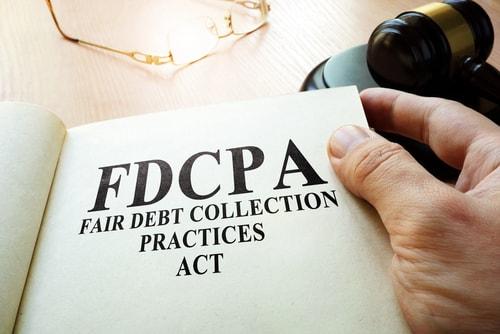1512 Artaius Parkway, Suite 300,
Libertyville, IL 60048
Call for a FREE Phone Consultation
847-549-0000
Video Consultations Also Available
 Spanish
SpanishServing Clients Across 7 Illinois Locations
Supreme Court Rules Foreclosure Lawyers Are Not Debt Collectors
 In the state of Illinois, foreclosure proceedings are handled entirely through the court system. Known as judicial foreclosure, the process is governed by the normal rules of civil procedure, just as any other civil lawsuit would be. In other states, non-judicial foreclosure is sometimes an option. A non-judicial foreclosure means that language in the mortgage agreement gives the lender the right to seize and sell the home in question if the borrower fails to make his or her payments.
In the state of Illinois, foreclosure proceedings are handled entirely through the court system. Known as judicial foreclosure, the process is governed by the normal rules of civil procedure, just as any other civil lawsuit would be. In other states, non-judicial foreclosure is sometimes an option. A non-judicial foreclosure means that language in the mortgage agreement gives the lender the right to seize and sell the home in question if the borrower fails to make his or her payments.
While the primary difference between judicial and non-judicial foreclosure is whether or not the court is involved, this difference has led to other issues. For example, does a mortgage loan constitute traditional debt? What about the lawyers who represent the lenders during foreclosure? Are they considered to be debt collectors? Earlier this year, the United States Supreme Court weighed in on these exact questions in a case entitled Obduskey v. McCarthy Holthus LLP.
The Background
In 2007, a Colorado man took out a secured mortgage loan in excess of $325,000. Two years later, he defaulted on the loan, and the lender hired a law firm to assist in non-judicial foreclosure proceedings, as permitted by Colorado law. The man received a from the law firm indicating that foreclosure proceedings were being initiated and that the notice was compliant with Colorado law as well as the federal Fair Debt Collection Practices Act (FDCPA).
According to court documents, the man responded to letter invoking a section of the FDCPA that requires a “debt collector” to “cease collection” if the alleged debtor disputes the amount or origin of the debt. Under the FDCPA, collection activities may resume once the collector verifies the debt and provide the debtor with a copy of the verification.
The man filed a lawsuit in federal court alleging that the law firm did not stop collection activities nor did the firm provide verification of the debt. The lawsuit was dismissed on the grounds that the law firm was not a debt collector under the FDCPA, so the law did not apply to the man’s situation. On appeal, the appellate court upheld the lower court’s ruling, and the case proceeded to the Supreme Court.
Unanimous Decision
The U.S. Supreme Court heard arguments on the case around the beginning of 2019 and issued its ruling in late March. The Court unanimously upheld the lower courts’ ruling, holding that the language of the FDCPA indicates that lawmakers intended to exclude mortgage and other “security-interest” enforcement from “ordinary debt collection.”
While Justice Stephen Breyer wrote the primary opinion, Justice Sonia Sotomayor penned a reluctantly concurrent opinion. Sotomayor wrote that she was not “certain that Congress recognized that this complex statute would be interpreted the way that the Court does today.” However, she indicated that the door was open for legislators to address the issue of security-interest enforcement directly so as to remove any uncertainty.
Foreclosure Defense Lawyers in Lake County
While the FDCPA does not generally apply to judicial foreclosures, you have other rights that must be protected during foreclosure proceedings. To get help with protecting those rights, contact an experienced Waukegan foreclosure defense attorney today. Call 847-549-0000 to schedule a free phone consultation.
Sources:
https://www.denverpost.com/2019/03/20/supreme-court-colorado-foreclosure-lawyers/
https://www.supremecourt.gov/opinions/18pdf/17-1307_7lho.pdf
 Stop Foreclosure
Stop Foreclosure
















